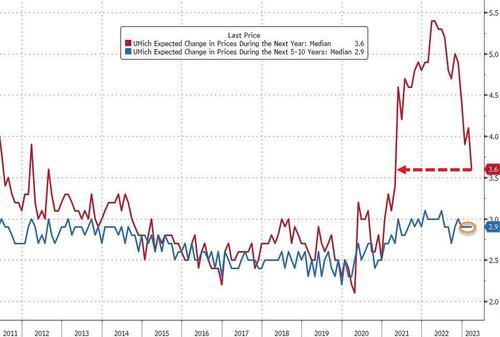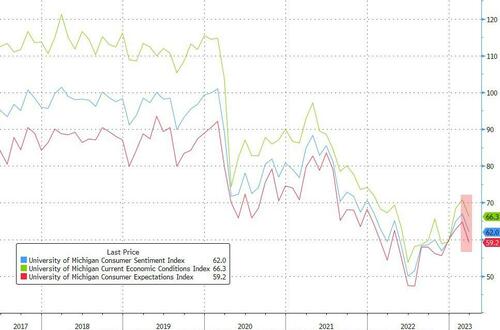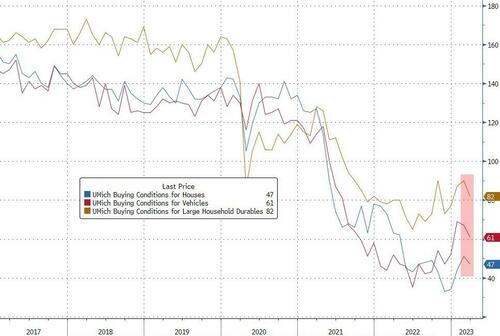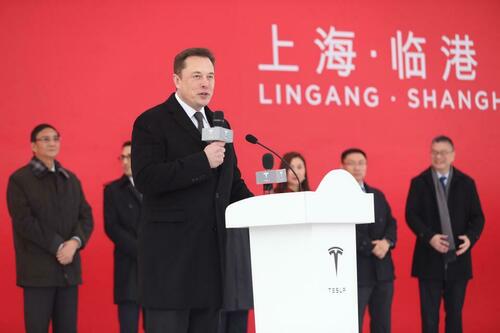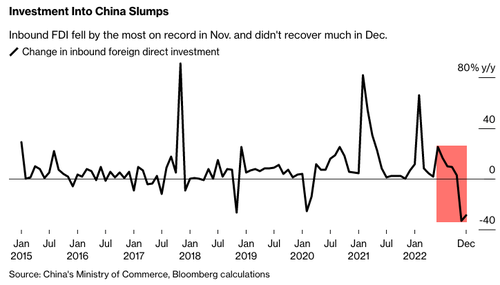
After the Supreme Court decided California v. Texas, you might have though we weren’t going to have any more significant constitutional cases about Obamacare. I certainly did. But recent events might have proved us wrong!
Yesterday, federal District Judge Reed O’Connor issued a decision in Braidwood Management, Inc. v. Becerra, striking down some key Affordable Care Act regulations that require insurance plans to cover various types of preventive care without any cost-sharing by patients. Technically, yesterday’s decision only addressed some procedural issues, including imposing a remedy of a nationwide injunction. But it builds on an earlier September 7, 2022 ruling in which Judge O’Connor addressed the constitutional issues. In that decision, he struck down ACA preventive care mandates issued by the Preventive Services Task Force (“PSTF“), but upheld several issued by other agencies: the Advisory Committee on Immunization Practices (“ACIP“) and the Health Resources and Services Administration (“HRSA“).
Unlike previous major Obamacare cases, which involved issues of federalism (NFIB v. Sebelius), textual statutory interpretation (King v. Burwell), and severability (California v. Texas), this is one is mainly about separation of powers. Specifically, Judge O’Connor ruled that the regulations issued by PSTF are unconstitutional because the members of PSTF—volunteer experts selected by the Director of the Agency for Healthcare Research and Quality (AHRQ)—are “officers of the United States” who were never properly appointed in any of the ways allowed by by the Constitution: appointment by the president (if they are “principal officers”) or by a head of department or a court of law (if they are “inferior officers”).
Before getting into the details, it’s worth noting that Judge O’Connor is the very same judge who wrote a truly awful decision in the last major Obamacare case (in which a group of red states tried to bring down the entire ACA by claiming that it couldn’t be severed from the now-unconstitutional individual health insurance mandate). On appeal, the US Court of Appeals for the Fifth Circuit ordered him to go back to the drawing board. But O’Connor never got the chance to do so, because the Supreme Court took the case and definitively rejected it based on lack of standing.
This history doesn’t inspire confidence in Judge O’Connor’s handling of further Obamacare-related litigation. In addition, it seems likely that the plaintiffs (a group of individuals business owners who object to the mandates based on a combination of economic and religious grounds) chose to file the case in this court precisely because they knew they would likely get O’Connor (who hears almost all the cases in the Wichita Falls division of the Northern District of Texas).
That said, each ruling must be assessed on its own merits. And my tentative judgment is that Judge O’Connor did a better job here than in his last Obamacare ruling.
Here are key passages on separation of powers and PSTF:
The Appointments Clause lays out the permissible methods of appointing “Officers of the United States.“ U.S. Const. art. II, § 2, cl. 2. Principal officers must be nominated by the President and confirmed by the Senate. Id. But Congress can authorize the appointment of “inferior Officers” by the President alone, the courts, or “the Heads of Departments….“
A person is an officer of the United States if he (1) occupies a “‘continuing‘ position
established by law“ and (2) exercises “significant authority pursuant to the laws of the United States.“ Lucia, 138 S. Ct. at 2051 (internal quotation marks and citations omitted). The members of PSTF satisfy both criteria.
First, PSTF members occupy a continuing position established by law. First, PSTF members occupy a continuing position established by law. Congress requires the Director of AHRQ to “convene” PSTF by assembling a group of “individuals with appropriate expertise.” 42 U.S.C. § 299b-4(a)(1). Congress described the purpose of PSTF, assigned its duties, authorized appropriations for its activities, and insulated it from political pressure. See id. § 299b… Regulations lay out extensive qualifications for the members, who serve four-year terms….
Second, PSTF members exercise significant authority pursuant to the laws of the United
States. This second step “focuse[s] on the extent of power an individual wields in carrying out his assigned functions.“ Lucia, 138 S. Ct. at 2051. PSTF has authority to determine what preventive– care services receive an “A“ or “B“ rating. Private insurers must cover all services with an “A“ or “B“ rating. 42 U.S.C. § 300gg–13(a)(1). Therefore, PSTF has authority to determine what preventive–care services private insurers must cover…..
Because PSTF members are officers of the United States, their appointments must comply with Article II. Principal officers must be nominated by the President and confirmed by the Senate, while inferior officers may be appointed by the President alone, the courts, or the heads of departments, if Congress permits.….
PSTF members are principal officers. The AHRQ Director”convene[s]”PSTF, but he is
not necessarily part of PSTF, whose members are otherwise “independent.” 42 U.S.C. § 299b-4(a)(1), (a)(6). In that regard, PSTF is different from ACIP and HRSA, which are subject to the [HHS] Secretary’s control…. PSTF is not even part of HHS, or any other agency… AHRQ has no oversight or supervision role over PSTF…. The AHRQ Director is appointed by the Secretary, but he neither directs nor supervises PSTF or its members.….
Because PSTF members are principal officers, they must be appointed by the President and confirmed by the Senate….
Even if PSTF members were inferior officers, their selection would still violate the
Appointments Clause. Congress can vest the appointment of inferior officers by the President alone, the courts, or the heads of departments. U.S. Const. art. II, § 2, cl. 2. If the power to “convene“ PSTF is commensurate with the power to appoint its members, then Congress arguably vested the appointment of PSTF members in the AHRQ Director. See 42 U.S.C. § 299b–4(a)(1). The AHRQ Director is not the President or an officer of the courts, so the only question is whether he is one of the “Heads of Departments“ mentioned in Article II. He is not.
Judge O’Connor concludes that some of these problems also apply to regulations issued by ACP and HRSA. However, he ultimately rejects plaintiffs’ Appointments Clause challenges to these agencies’ actions because their regulations can be—and were—”ratified” by the Secretary of Health and Human Services, who is a “principal officer” duly appointed by the president and confirmed by the Senate.
I am not an Appointments Clause expert, so could easily be missing something. But the above analysis about PSTF at least strikes me as highly plausible. This body is indeed something of a strange beast that doesn’t readily fit within normal constitutional categories. I think O’Connor is also right about how ratification by higher officials obviates the issues with ACIP and HRSA.
Later in the September 2022 opinion, O’Connor also rejects nondelegation challenges to regulations issued by all three of these bodies, on the grounds that they meet the very permissive nondelegation rules outlined in current Supreme Court and Fifth Circuit precedent, under which Congress can delegate even very broad power to the executive, so long as it is guided by an “intelligible principle.” I think O’Connor is right as to the current precedent. Whether things would change if the Supreme Court tightened up nondelegation standards (as several Supreme Court justices rightly want to do) is a much tougher question. We may find out if this case reaches the Supreme Court.
In the last part of his September 2022 opinion, Judge O’Connor ruled that PSTF’s “PrEP” regulations mandating that insurance plans cover drugs that help prevent infection by the HIV virus violate the Religious Freedom Restoration Act when applied to those plaintiffs who object to them on religious grounds (because they believe the use of these drugs promotes “sexual activity outside marriage between one man and one woman, including homosexual conduct,” and they further believe such sexual activity goes against the will of God).
I will leave this issue to RFRA experts, except to make the point that this is probably the least significant part of the ruling. Employers with religious objections to anti-HIV drugs are very rare, and workers who want coverage for them are highly likely to be able to find alternatives.
In such cases, it seems to me only right to let the religious objectors run their enterprises as they see fit, and let those who oppose their principles work elsewhere. Live and let live! I say that even though I myself have zero sympathy for the plaintiffs’ moral stance here, and do not believe there is anything inherently wrong with “sexual activity outside marriage between one man and one woman.” Whether Judge O’Connor’s RFRA ruling is correct as a legal matter, is a different question, of course.
Some critics of Judge O’Connor’s ruling argue that lifting the PSTF mandates is likely to be a disaster for workers. I am not convinced. Different workers have divergent needs and preferences. Some might prefer higher pay, lower insurance premiums, or greater coverage for other health problems to having the benefits mandated by PSTF. To the extent the mandates impose additional costs on employer-provided plans, employers will have incentives to cut pay or skimp on other benefits to make up for it. For some workers, that will actually be a worse deal than the alternatives that would exist in the absence of a mandate. Here, as elsewhere, one-size-fits-all mandates are generally a bad idea.
Both sides will almost certainly appeal the parts of this ruling they lost. As the case continues, it’s worth keeping in mind an issue I highlighted in my analysis of Judge O’Connor’s previous ACA ruling:
I do not expect this ruling to survive on appeal…. [But] the history of ACA-related litigation is filled with surprises and failed predictions by experts. My own predictions about the original [2012] Obamacare case were right on some key points, but wrong on others…
There is, however, one important distinction between the 2012 ACA case and the current one. Despite repeated claims to the contrary by the law’s defenders, there was never a broad, cross-ideological consensus in favor of the constitutionality of the individual mandate. From early on, prominent conservative and libertarian legal scholars and commentators argued that the law was unconstitutional. The issue was one that divided experts largely along ideological lines. Thus, judges could (and did) write plausibly defensible opinions on either side of the issue.
By contrast, expert support for the states’ severability argument in the present case is notable by its near-total absence. Those conservative and libertarian legal scholars who have opined on the subject have almost all argued that the states’ position is badly wrong…. Judges don’t have to listen to expert commentators…. But lack of intellectual respectability does make it much harder for a controversial new argument to prevail, especially in a high-profile case like this one.
The plaintiffs’ main arguments in the severability case never did achieve meaningful intellectual respectability. That was a key reason why they ultimately went down to defeat, and Judge O’Connor’s ruling ended up a widely reviled outlier.
As the current case goes one, keep an eye on the reactions of expert commentators. If this O’Connor ruling is also met with cross-ideological expert condemnation, that’s a strong sign it is likely to be overruled. But if experts start to divide along ideological lines—as happened with the 2012 Obamacare litigation that led to NFIB v. Sebelius—then things become far more uncertain.
The post Federal Court Strikes Down Obamacare Preventive Care Insurance Mandate appeared first on Reason.com.
from Latest https://ift.tt/5zKa7ow
via IFTTT





 Emma
Emma 
 (@TheCynicalHun)
(@TheCynicalHun)  (@MrAndyNgo)
(@MrAndyNgo)  (@JackPosobiec)
(@JackPosobiec) 